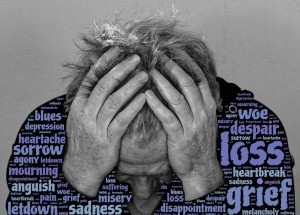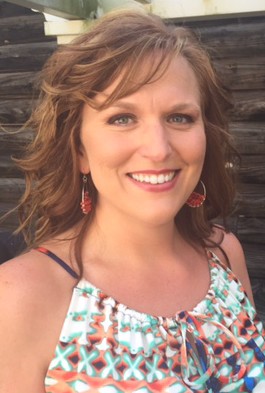
Two of my daughters had braces put on their teeth this morning. It was the second round for my middle child, so she knew what to expect. But this was a new experience for my youngest, who by the way, refuses to take medicine of any kind no matter how sick she is. No pills, no meltaways, no liquids.
I never had braces as a kid, but I knew from my two older girls having had them several years ago that my youngest child’s mouth would start hurting a few hours after we left the orthodontist’s office. I urged her to take some medicine, but she refused.
When I picked her up from school, I could see the pain written in her eyes before she ever got in the car. She opened the door, slouched into the seat, and whimpered, “My mouth hurts.” She didn’t say a word during the rest of the ride home. I told her she would need to take medicine when we got home, but I doubted she would.
Within minutes of arriving at home, I set her pain-relieving medicine options on the kitchen counter: a meltaway and a liquid. Instead, she asked for a pill. In the past, when she has attempted to swallow a pill, there has been prolonged weeping and gnashing of teeth. But less than a minute after handing her the pill, she announced, “I swallowed it.” Excuse me, what? Indeed, she had taken the medicine. She said her mouth hurt too badly not to take it.
I sympathized with her pain, but in reality, I couldn’t empathize. I have no idea what it feels like to have braces put on my teeth. Apparently, it’s pretty painful.
Though I’d do anything to take away my daughter’s pain, there was nothing I could do. She had to be desperate enough to take the step toward relieving the pain.
We can’t know someone else’s pain unless we’ve experienced it for ourselves. Even then, we don’t their level of tolerance for the pain. It may be quite higher or lower than our own.
But most of us know this: when you’re hurting, all you can think about is wondering when the pain will end. You’ll do almost anything to make it go away. No amount of sympathy, kind words, cooked meals, or platitudes from others can touch the ache. You have to find your own way through and out of the pain, and the remedy may be different from what anybody expects it to be.
Today I read about a man in his fifties who jumped to his death from a popular tourist attraction in one of my favorite vacation towns. The article didn’t state his name or reason for his suicide; only that witnesses saw him jump, and at one point, he seemed to want to change his mind. Whatever the cause of his pain, he must not have been able to find his way through and out of it. So heartbreaking.
I’ve had those dark thoughts of my own death. When the world as you know it unravels, when you lose faith and friends and dreams and hope (oh, and you experience the emotional upheaval that comes with trying to find the right hormone replacement therapy), and pain is all you feel, you just want it to end. Grief is painful, no matter the reason. I didn’t tell my therapist or my doctor about my thoughts because some confessions (even to trustworthy people) can come back to haunt you. I told two people: my husband and my best friend (never mind that I’m offering it up to the world here).
My husband says he thinks most people have dark thoughts of death at least once in their lives. Maybe he’s right. I don’t know. But this I know: you don’t have to be alive very long before you experience pain and grief.
I’m not here to condemn those who couldn’t take the pain a day longer or to decide who the brave ones are. Instead, I’m writing to say that pain and grief can be debilitating. We can sympathize, and sometimes even empathize, but we’ll never truly the know the depth or tolerance of another person’s pain.
In truth, all we really can do is hope we offer someone the grace to see their way through the pain (whatever that looks like) for another day.


